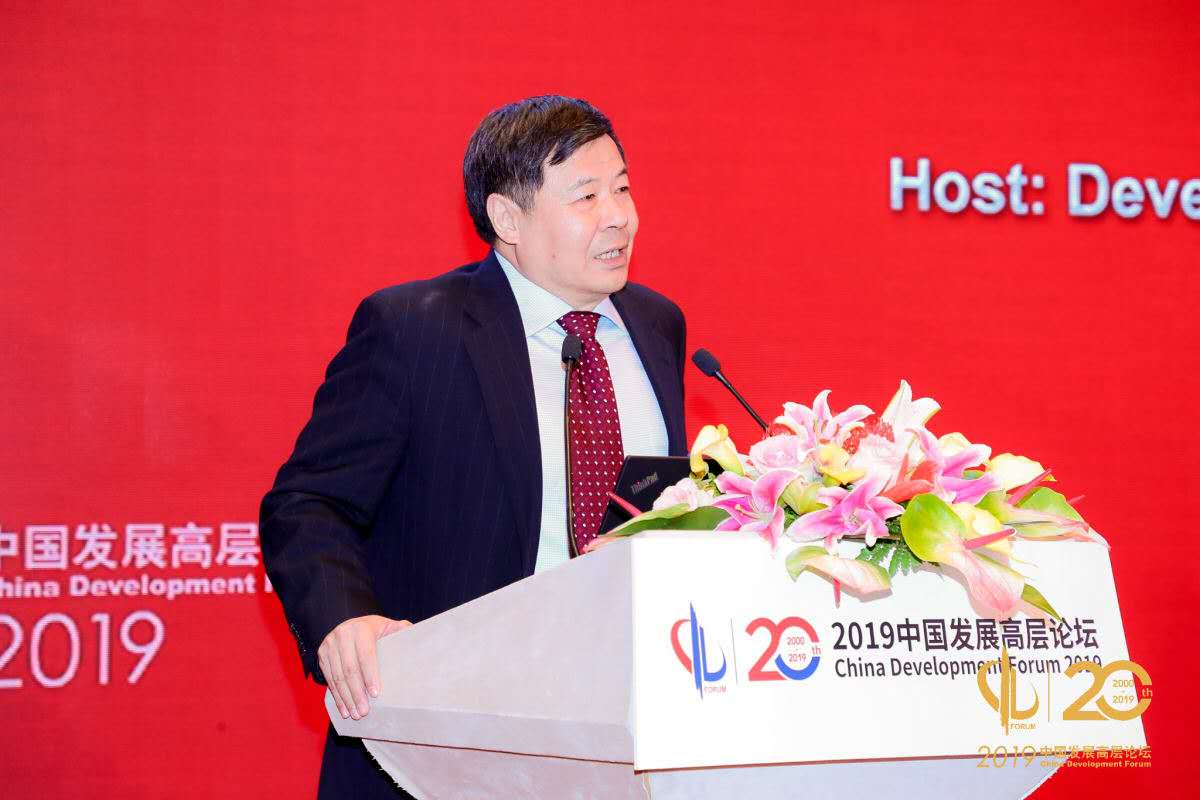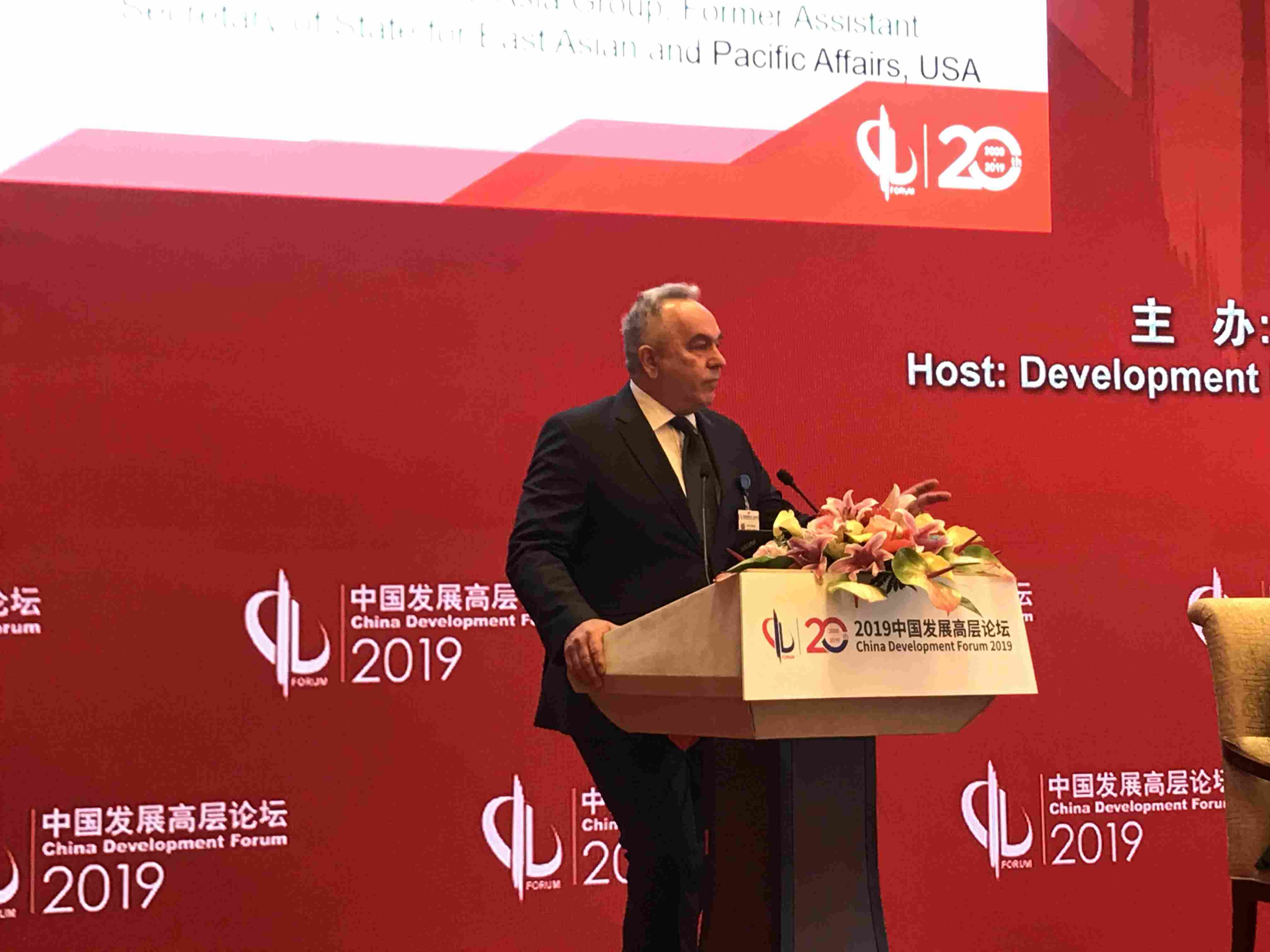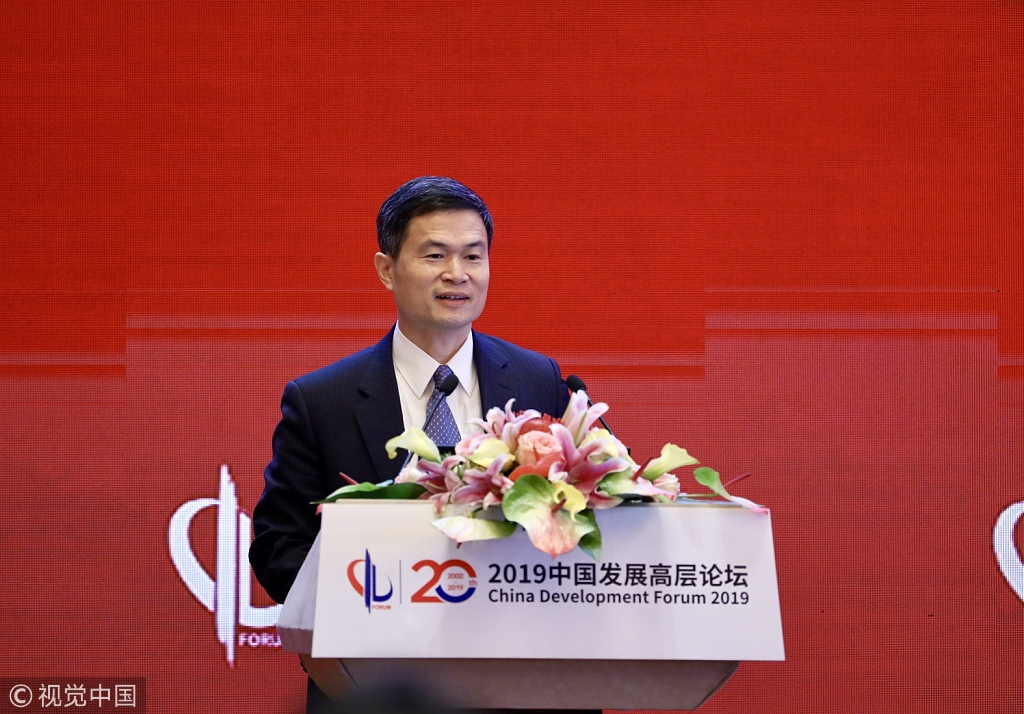
Economy
12:31, 23-Mar-2019
It's time to build a new consensus for China-U.S. cooperation
Updated
14:37, 24-Mar-2019
CGTN
02:50

The latest trade talks between China and the United States reveal new hope for the cooperation prospects of the world's two largest economies as trade tensions brought bruises for industries of both countries. Business leaders and officials expressed their views on China-U.S. cooperation at the session "New Consensus for China-U.S. Cooperation" of the China Development Forum (CDF) on Saturday.
Former vice finance minister Zhu Guangyao said the contribution of China and the United States is needed to maintain the existing international order.
Zhu made four suggestions: first, strengthen the strategic leadership of the two heads of state to ensure the stability of China-U.S. relations; second, give full play to the existing four high-level dialogue mechanisms between China and the United States, as well as the existing provincial and state-friendly and cooperative mechanisms.

Former vice finance minister Zhu Guangyao speaks at the CDF, March 23, 2019. /CDF Photo
Former vice finance minister Zhu Guangyao speaks at the CDF, March 23, 2019. /CDF Photo
In April 2017, China and the United States undertook a high-level dialogue mechanism including diplomatic security, comprehensive economic dialogue, cybersecurity and humanities exchange. The current four mechanisms are extremely important.
Third, give full play to the cooperation between business and industry entrepreneurs. China-U.S. trade totaled more than 630 billion U.S. dollars last year, and two-way FDI exceeded 240 billion U.S. dollars. Most of them come from Chinese and American entrepreneurs.
Last, the role of think tanks is significant as it provides policy advice through in-depth and frank exchanges, said Zhu.

Kurt M. Campbell, Chairman and CEO of the Asia Group speaks at the CDF, March 23, 2019. /CGTN Photo
Kurt M. Campbell, Chairman and CEO of the Asia Group speaks at the CDF, March 23, 2019. /CGTN Photo
Kurt M. Campbell, Chairman and CEO of the Asia Group, said that competition will be essential, but it is not enough for China-U.S relations.
"One of the most important things the United States and China need to do is to recognize if we do not have cooperation and a vision, an optimistic vision of where we can work together, whether it's space exploration or dealing with climate change or working on simple matters of poverty, it will be impossible for our countries to find a way forward in the future," said Campbell.
China and the United States should seek new opportunities for cooperation in a variety of industries as the two sides are highly complementary (in terms of economic structure), according to Fang Xinghai, deputy head of China Securities Regulatory Commission.
Fang said that the two countries have countless business endeavors and there are many opportunities for cooperation in industries such as energy.

Fang Xinghai, deputy head of China Securities Regulatory Commission, at the CDF, March 23, 2019. /VCG Photo
Fang Xinghai, deputy head of China Securities Regulatory Commission, at the CDF, March 23, 2019. /VCG Photo
There are concerns from the U.S. that China's marked advancement in science and technology may not be "normal" or "reasonable." In response to this, Fang said the most important reason for China's huge sci-tech progress is the investment of a large amount of human and financial resources. If the U.S. side is envious of, or even jealous of what China has achieved, more capital input can be a realistic solution.
"Right now the United States is very much overreacting to the threat in ways that I worry will be very damaging to our own society, our own openness as a system, as well as ways that will be harmful to the whole stability of the whole global economy, even potentially to world peace," said Susan Shirk, professor at the University of California and former deputy assistant secretary of state.
"We should be striking a balance between preserving national security and preserving our own open society, but right now the national security concerns are dominating U.S. policy. And that's because the business community is frustrated with the situation in China, and it's now for standing up for engagement with China in the way they used to."

SITEMAP
Copyright © 2018 CGTN. Beijing ICP prepared NO.16065310-3
Copyright © 2018 CGTN. Beijing ICP prepared NO.16065310-3